All members of Huron’s community have the right to work and study in an environment that is free from any form of gender-based and sexual violence.
Meet Your Gender-Based Sexual Violence Advocacy Specialist

Mackenzie Robinford (MSW, RSW)
She/her
Hi, I’m Mackenzie, Huron’s Gender-Based Sexual Violence Advocacy Specialist. I provide counselling, case management, and safety-planning related to gender-based and sexual violence. It’s important to me that my practice is queer-affirming, survivor-centred, and anti-oppressive. Whether you have experienced sexual violence, need support after receiving a disclosure, or want to talk about the complicated dynamics of navigating sex and consent, I’m here to support you.
Services
Counselling
I offer trauma-informed counselling to survivors, whether you experienced gender-based or sexual violence on- or off-campus or before you came to Huron.
Case Management
I can support you with referrals, documentation for academic consideration, and navigating systems in the university and community.
Safety Planning
I aim to empower survivors to have control over their situations and minimize harm through safety planning.
FAQs About Meeting with Huron’s GBSV Advocacy Specialist
As a Registered Social Worker, Mackenzie is committed to upholding confidentiality. There may be times where she must disclose information when required by law. She will share the limits of confidentiality in your first meeting.
No. You have the right to have control over if, how, and when you share your experience. You do not have to discuss anything you aren’t ready to talk about.
Many survivors question whether their experience was an act of gender-based or sexual violence. It’s okay to trust the part of you that is telling you there was something off, uncomfortable, or unsafe about what happened. You can reach out for support even if you are unsure how to label your experience.
Mackenzie can provide documentation to support requests for academic consideration.
No. You deserve to have control over what happens next. Mackenzie will support you regardless of whether you would like to pursue a formal complaint.
On-Campus Resources
Our Wellness staff are here to provide non-judgmental support, counselling and resources that may be effective in alleviating and addressing challenges.
Huron’s Wellness Centre is located on the pathway between Southwest Residence and Brough House Residence.
Fill out a self-referral form to request an appointment.
The Gender-Based Violence & Survivor Support Case Manager is there to connect survivors with resources and support, regardless of whether a formal complaint is submitted.
You can reach out via email at support@uwo.ca or by calling 519-661-3568
Community Resources
24/7 support line for individuals who have experienced sexual assault and domestic violence: 519.642.3000 or 1.800.265.1576
After Hours: 519.646.6100, press 0 and ask switchboard to page on-call, specialized nurse.
SADVTP can provide medical and emotional support at hospital as well as follow up from a social worker.
601 Dundas Street, London; 519.661.5670
Peer support phone service run by trans people for trans and questioning peers. Mon-Fri 1PM-8PM. 877.330.6366
2SLGBTQ+ peer support text and chat service. Sun-Fri 4PM-9PM.
647.694.4275
Give Support
Responding To Disclosures
Anyone at Huron can receive a disclosure of Gender-Based and Sexual Violence. In the event that a survivor discloses their experience(s) to you, please know that you are in a special position to act as a compassionate support and connection to resources.
Bystander Intervention
If you see someone experiencing gender-based violence, you can choose to intervene. If you do so, your two main goals are to:
1. Make sure you stay safe.
2. Increase options for the person experiencing harm.
You might want to use one or more of these strategies:
Report
A report initiates a formal process under Huron’s Policy on Gender-Based Sexual Violence (PDF). Please use this form if you have experienced an incident of sexual violence and wish to report it to Huron:
FAQs About Huron’s GBSV Policy & Reporting Options
Huron’s Gender-Based Sexual Violence Prevention Policy
The policy applies to all members of the Huron community, including staff, students, faculty, volunteers, contractors, visitors/guests and members of the Executive Board. As long as the Respondent (perpetrator) is an active, registered/enrolled member of the Huron Community, the policy applies, regardless of whether the Complainant/Survivor is a member of the Huron Community.
Huron’s gender-based and sexual violence policy applies to any incident where the respondent is a student/staff/faculty member of Huron, regardless of whether the incident happened on or off campus.
The Dean of Students at Huron can assist you in providing information and options open to you if the perpetrator is not part of the Huron community.
A survivor is any person who has experienced sexual violence, including individuals who self-identify as a victim or victim/survivor. A complainant is an individual who has been the target of violent behaviour and files a complaint of sexual violence with the University A respondent/perpetrator is an individual who is alleged to have committed an act of sexual violence in a report made by a survivor. A designated authority is the senior administrator at Huron who will receive the formal complaint. If the complaint is substantiated, they will decide which sanction or penalty will be imposed.
The Reporting Process
You can file an official complaint with the university by filling out and submitting the Gender Based Violence, Harassment, Sexual Harassment, Discrimination and Racism Reporting, Student Code of Conduct Violation Form.
Once you file of a formal complaint, Huron will appoint a qualified, professionally trained, internal or external investigator(s) to investigate the complaint. A copy of the Formal Complaint will be provided to the Respondent. The Respondent will be allowed to respond to the complaint, in person with the investigator where a statement will be taken and a copy of that response will be provided to you. A Complainant has the right to withdraw from the investigation process at any time, but Huron may still be obligated to continue the investigation even in the absence of the Complainant.
When you file a complaint with Huron, formal procedures are triggered, and confidentiality can no longer be maintained. Your personal information will be shared with the respondent to ensure procedural fairness.
You have the right to withdraw from the investigation at any time, but Huron may still be obligated to continue the investigation even in the absence of your participation.
The Investigation Process
You may choose not to participate or withdraw your participation at any point.
The investigator will provide you with information pertaining to the status of the investigation. As well, the Huron’s Gender-Based Sexual Violence Advocacy Specialist can be your support during the process and provide you with information.
As a matter of procedural fairness, the respondent receives a copy of the report so that they can know the nature of the report against them and provide a meaningful response. The respondent then provides a written response that is shared with the survivor.
If, after an investigation, the investigator(s) finds that on a balance of probabilities that gender-based or sexual violence occurred, the University designate: the Director, Human Resources (involving a staff or faculty member) or the Dean of Students (involving two students), will determine what corrective action is to be taken, if any. Sanctions or actions available to the designated authority range from a formal letter of reprimand to expulsion from the university.
The investigator will provide a report to a University designate: the Director, Human Resources (involving a staff or faculty member) or the Dean of Students (involving two students). That individual will be responsible for making a decision, based on the balance of probabilities, whether sexual misconduct did or did not occur. Based on the outcome of that decision, the designate will determine the appropriate sanctions, as applicable. The designate will provide a written summary of the outcome of the investigation and their decision to the survivor and alleged perpetrator. Because Provincial legislated privacy laws cover universities and employment, the extent of what may be communicated to those involved in any complaint will be balanced against the need to comply with the privacy rights of those involved.
Safety
Interim measures are steps put in place to ensure the safety and well-being of a survivor and other members of Huron’s community. Interim measures may be imposed immediately upon receipt of the complaint, or at any time during the investigation process.
Interim measures may include moving the respondent, issuing a temporary suspension, trespassing the respondent, etc. The specific interim measures implemented will be dependent on the particular safety issues inherent in each complaint.
If the perpetrator is deemed a safety risk to you or other residents, interim measures may be put in place that could include a mandatory move to a different residence building, a termination of their residence contract, and/or a Notice of Trespass to Huron’s residences.
If the perpetrator is in one of your classes, interim measures can be put in place in support of your safety on a temporary basis, pending the outcome of an investigation. Arrangements may include changing classes, working from home, extensions, etc. More formal and on-going actions may be undertaken after an investigation, including the perpetrator being permanently removed from the class.
Huron’s Gender-Based Sexual Violence Advocacy Specialist can create a detailed and personalized safety plan with you, as well as refer you to other resources both on and off campus.
All employees and students have a right to be free of retaliation or threat of retaliation as a result of being involved in a complaint of gender-based/sexual violence. Retaliation will be deemed to be harassment and dealt with in accordance with Huron’s Harassment, Sexual Harassment & Discrimination Prevention Policy.
Learn
Training
The Community Safety Office works with individuals and groups at Huron to strengthen skills and build tools to address gender-based and sexual violence. Students, staff, and faculty can request GBSV training for their class, team, or club by reaching out to mackenzie.robinford@huron.uwo.ca
Here are a few trainings we currently offer:
Consent 101
A self-directed, online module about gender-based and sexual violence, consent and university policies.
Undressing Consent
A 90-minute workshop where students learn consent skills.
Responding to Disclosures
Respond to disclosures of gender-based and sexual violence in a trauma-informed way.
Bystander Intervention
Intervene during an incident of harm in a way that maintains your safety and increases options for the person experiencing harm.
Under the Influence
Learn harm reduction practices when engaging in sex under the influence of alcohol or drugs.
Lead for Good
Recognize your privilege and use your power for good.
Understanding Consent
Consent means a clear, enthusiastic, ongoing and voluntary agreement to engage in sexual activities. Consent is informed, freely given and actively communicated by words, body language or other forms of communication. It is always the responsibility of the person initiating sexual activity to ensure they have consent.
It is also important to know that someone who is incapacitated (ie. by alcohol or drugs, asleep or unconscious) is not able to consent. If you are unsure how drunk or high someone is- don’t initiate sexual activity – you risk causing harm.
Boundaries
If your relationship involves sexual activity, it is important that you and your partner(s) understand consent. Sexual boundaries are about respecting your own limitations, as well as respecting the limits of your partner(s).
When someone says ‘no’ it is important to listen and not take further action. People may communicate ‘no’ in different ways, so part of respecting someone’s boundary starts with really paying attention to their words and body language.
Learning about others needs and boundaries as well as your own is super important for a positive sexual experience. Recognizing your level of comfort with a sexual activity and the ability to have a conversation with your partner(s) about their boundaries is key. Pressuring someone to do what you want is coercion and can cause harm.
Understanding Gender-Based and Sexual Violence
What is gender-based and sexual violence?
Any sexual act or act targeting a person’s sexuality, gender identity and/or gender expression, whether the act is physical or psychological in nature. These acts may be committed or threatened or attempted against a person without the person’s consent.
These acts include:





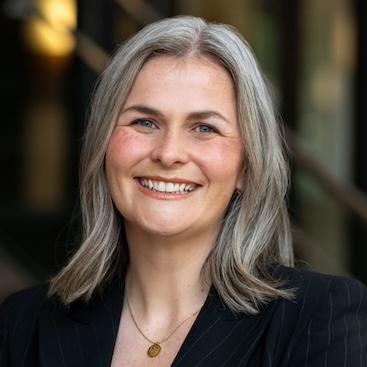

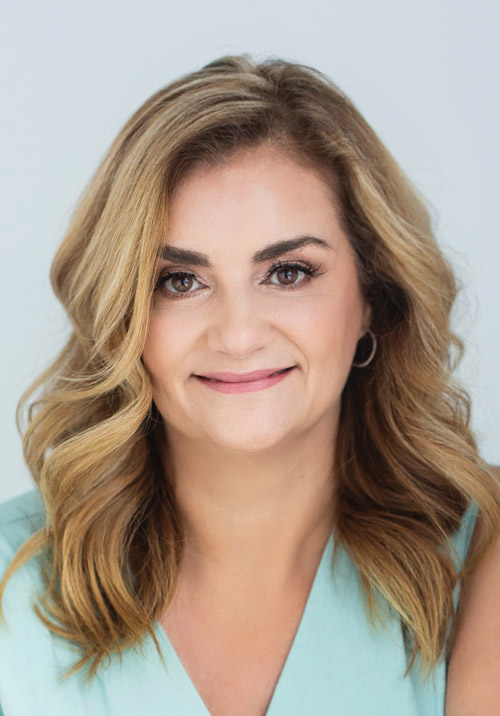 Lisa Jones Keenan is the Vice President of Sales at Xplornet Communications, the largest rural fixed wireless broadband service provider in Canada.
Lisa Jones Keenan is the Vice President of Sales at Xplornet Communications, the largest rural fixed wireless broadband service provider in Canada. 
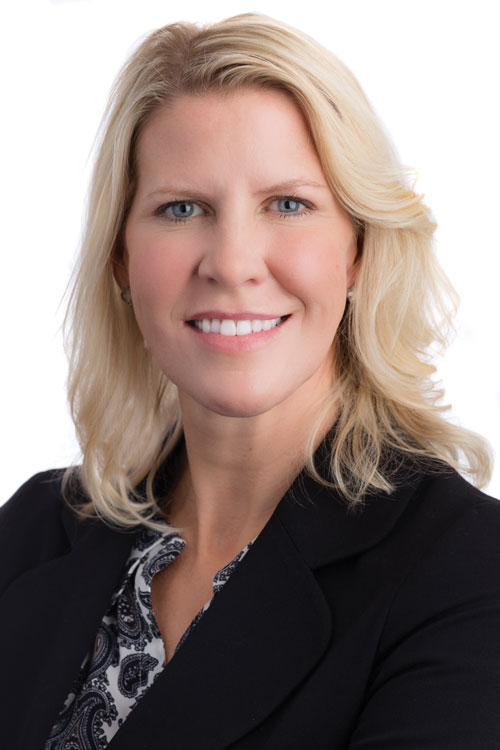 Leigh Allen is the AVP, Global Strategic Research, Reinsurance Group of America Inc., one of the world’s largest global life and reinsurance companies.
Leigh Allen is the AVP, Global Strategic Research, Reinsurance Group of America Inc., one of the world’s largest global life and reinsurance companies. Yola Ventresca is a Managing Partner, Lerners LLP, Secretary of Huron’s Board of Governors and a Huron Class of ’02 alumni. Selected as one of Canada’s “Best Lawyers,” she is passionate about the value of Liberal Arts in helping students succeed in their careers.
Yola Ventresca is a Managing Partner, Lerners LLP, Secretary of Huron’s Board of Governors and a Huron Class of ’02 alumni. Selected as one of Canada’s “Best Lawyers,” she is passionate about the value of Liberal Arts in helping students succeed in their careers.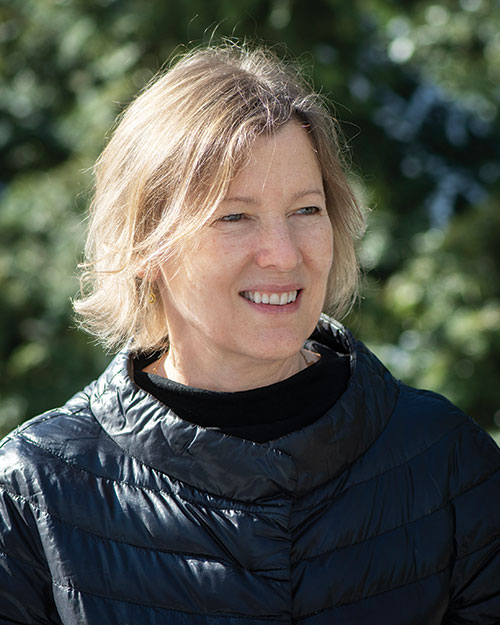 Susan Farrow is an Assistant Professor in The Temerty Faculty of Medicine at the University of Toronto and a Founding Partner and Co-Director of The Toronto Institute of Group Studies, an organization offering certified training and education in group leadership.
Susan Farrow is an Assistant Professor in The Temerty Faculty of Medicine at the University of Toronto and a Founding Partner and Co-Director of The Toronto Institute of Group Studies, an organization offering certified training and education in group leadership. 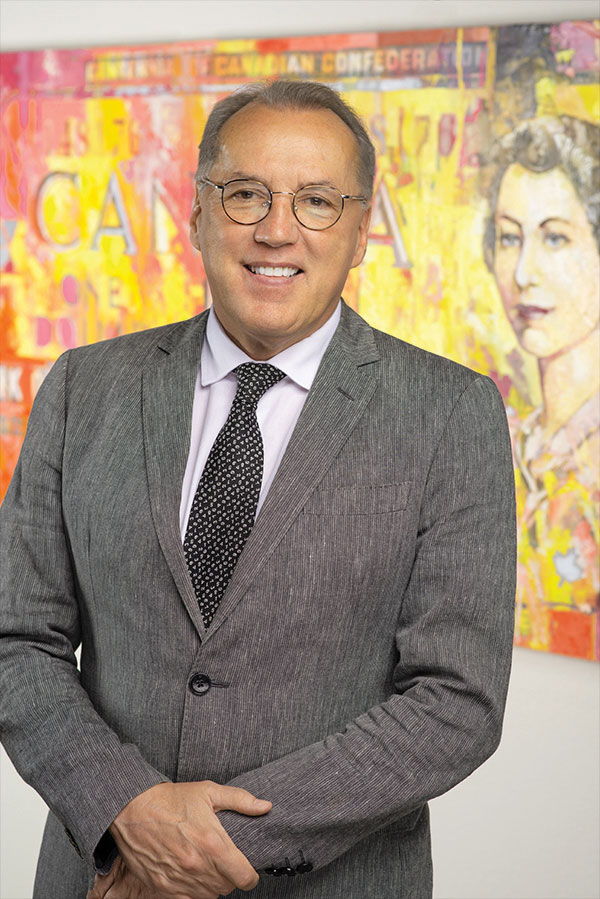 Frank Holmes is CEO and Chief Investment Officer of U.S. Global Investors, as well as a business commentator, philanthropist and Huron Class of ‘78 alumnus. Holmes also serves as the Executive Chairman of HIVE Blockchain Technologies, the first cryptocurrency mining company to go public in 2017.
Frank Holmes is CEO and Chief Investment Officer of U.S. Global Investors, as well as a business commentator, philanthropist and Huron Class of ‘78 alumnus. Holmes also serves as the Executive Chairman of HIVE Blockchain Technologies, the first cryptocurrency mining company to go public in 2017.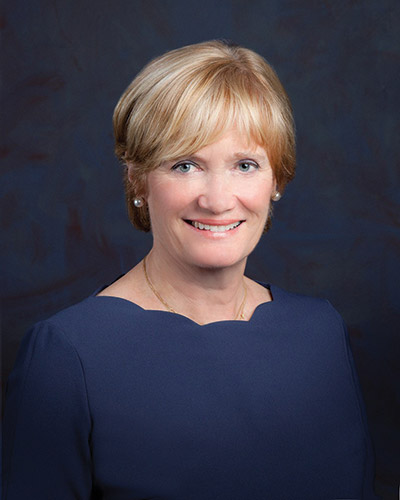 Kelly Meighen is an experienced philanthropist and volunteer. In her role as president of the T.R. Meighen Family Foundation, she has created a legacy of volunteerism and philanthropic giving in the areas of youth mental health advocacy, environmental conservation and cultural vibrancy.
Kelly Meighen is an experienced philanthropist and volunteer. In her role as president of the T.R. Meighen Family Foundation, she has created a legacy of volunteerism and philanthropic giving in the areas of youth mental health advocacy, environmental conservation and cultural vibrancy.  Ranjita is Executive Chair of the Oxford Global Partnership, advising investors, businesses, family offices and entrepreneurs on sustainable, inclusive and responsible value creation. A Business Fellow at Oxford University’s Smith School, Ranjita engages with companies on pursuing value with values, and teaches a postgraduate “Essentials of ESG & DEI” course.
Ranjita is Executive Chair of the Oxford Global Partnership, advising investors, businesses, family offices and entrepreneurs on sustainable, inclusive and responsible value creation. A Business Fellow at Oxford University’s Smith School, Ranjita engages with companies on pursuing value with values, and teaches a postgraduate “Essentials of ESG & DEI” course.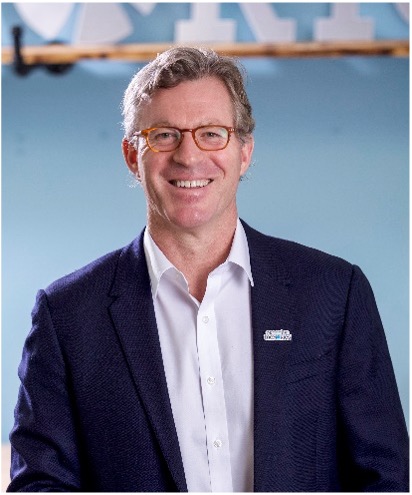 Caleb Hayhoe is the Founder & Chairman of Flowerdale Group and a Huron Class of ’85 Alumnus. Flowerdale Group is a Hong Kong based family office with a global investment outlook across public markets, real estate and private investment. Hayhoe previously spent over ten years building a global sourcing business together with an exceptional team, and remains committed to entrepreneurialism and helping great ideas become sustainable companies.
Caleb Hayhoe is the Founder & Chairman of Flowerdale Group and a Huron Class of ’85 Alumnus. Flowerdale Group is a Hong Kong based family office with a global investment outlook across public markets, real estate and private investment. Hayhoe previously spent over ten years building a global sourcing business together with an exceptional team, and remains committed to entrepreneurialism and helping great ideas become sustainable companies.



